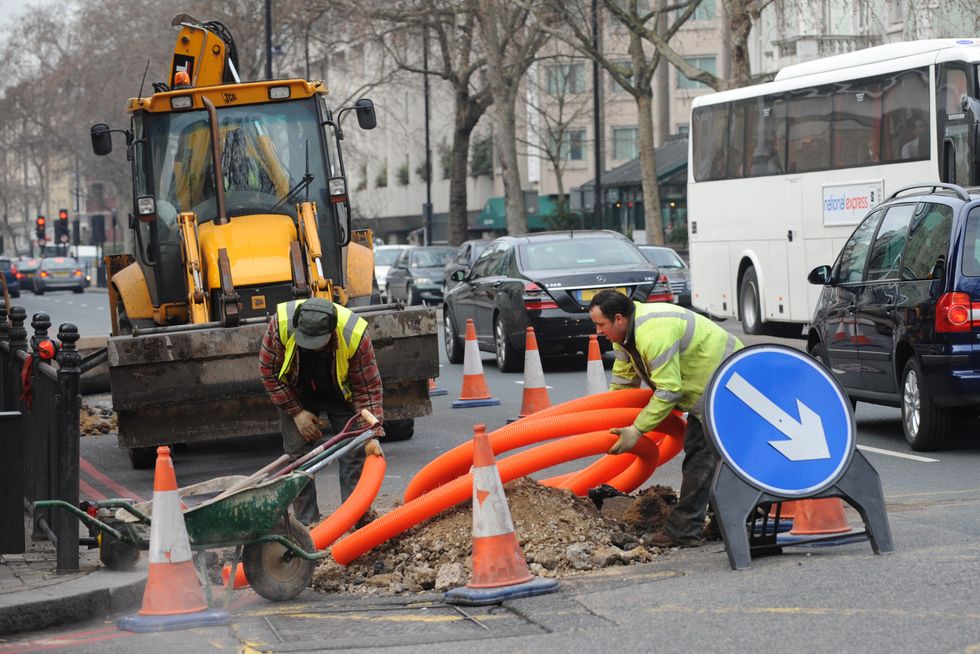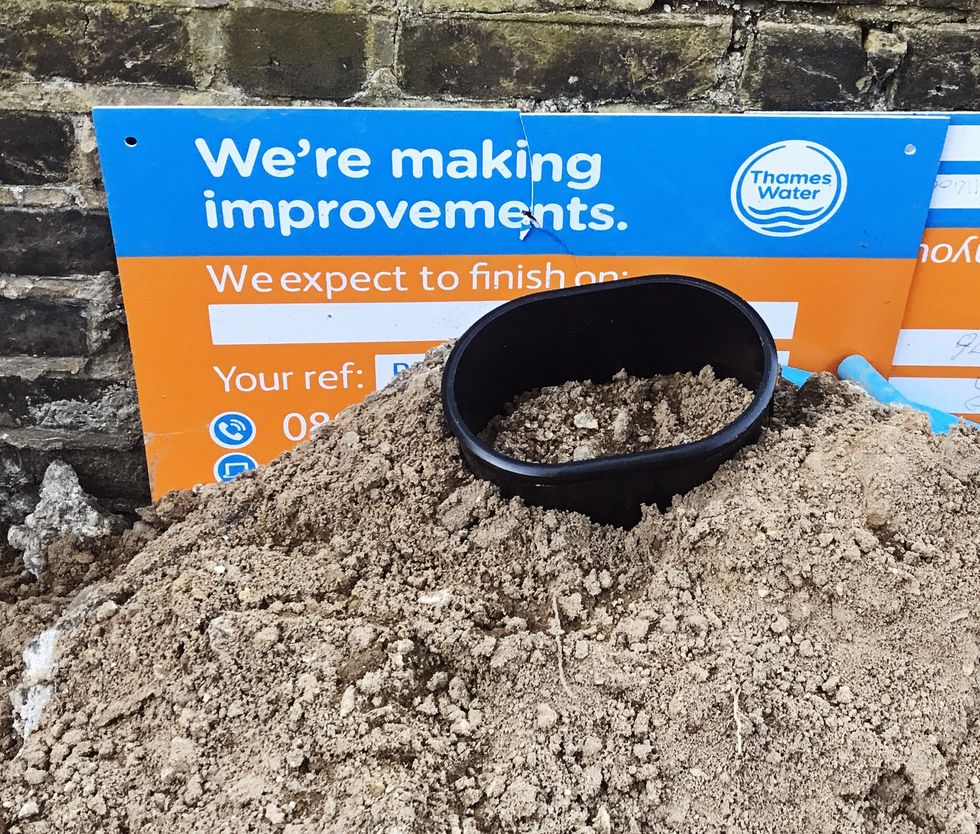WATCH: Bev Turner SLAMS 'war on motorists' as roads crumble
GB NEWS
The Transport (Duty to Co-operate) Bill was introduced into Parliament by Conservative MP Dr Ben Spencer
Don't Miss
Most Read
Trending on GB News
A new law could require utility companies and transportation authorities to coordinate roadworks in an effort to prevent roads from being repeatedly dug up, causing hours of delays to drivers.
It comes after a bill was introduced to Parliament yesterday by Conservative MP for Runnymede and Weybridge Dr Ben Spencer, calling for urgent action.
Spencer presented his Transport (Duty to Co-operate) Bill to the House of Commons during his 10 Minute Rule, stating that it would ease disruption caused when different providers work on the same roads.
The bill aims to tackle what Dr Spencer described as roads being dug up "over and over again" by gas, electricity, water and broadband companies.
Do you have a story you'd like to share? Get in touch by emailingmotoring@gbnews.uk

The Transport (Duty to Co-operate) Bill was introduced into Parliament yesterday
PA
Spencer told the Commons: "All too often in Runnymede and Weybridge, our transport infrastructure is brought to a halt due to multiple planned works happening at the same time."
The proposed legislation would create a new "duty to co-operate", forcing better communication between different agencies responsible for infrastructure works.
Under the plans, transport authorities would be required to assess the combined impact of different works taking place simultaneously.
This would address situations like "full M25 closures coinciding with mainline rail engineering works" that have plagued Spencer's Surrey constituency.
The bill would mandate that when utility companies dig up roads, they must check if anything else needs fixing at the same time, preventing repeated disruption.
"Disruption should be avoided and minimised by authorities and providers talking to each other and coordinating works," Spencer explained during his Commons speech.
He emphasised that while some disruption for infrastructure improvements is inevitable, better planning could prevent much of the chaos currently experienced.
The MP noted that Surrey County Council has already established a task force to drive better coordination of roadworks and has called on the Department for Transport to make changes to systems managing highway works.
However, the MP believes a statutory duty is necessary to achieve the level of coordination required across all transport networks.
He cited numerous examples from his constituency where coordination had failed "despite repeat assurances that authorities do coordinate and discuss". In Chertsey, roads have been "repeatedly dug up, often under the guise of urgent works from gas to water to electricity," he told MPs.
More shockingly, Spencer noted instances when "authorities or utilities haven't adequately staffed works or have left them unattended". He highlighted specific failures at Pains roundabout and in Maybridge, where signal problems "took hours to resolve as they didn't have the right equipment or staff on site".
Under the proposed rules, National Highways "could not inform me that they were unaware of the impact excess trains and the Chertsey branch line would have on level crossings" during a motorway closure weekend.
LATEST DEVELOPMENTS:
- Rachel Reeves's tax hikes will see drivers slapped with £5,490 bill when buying new petrol and diesel cars
- Major car brands fined £461million for 'colluding to restrict competition' in groundbreaking case
- British drivers face breakdown nightmare with 21 million journeys set to cause traffic chaos across UK

Utility companies could be forced to co-ordinate roadworks with transport authorities under new proposals
PASimilarly, Network Rail wouldn't be able to claim they "forgot" to communicate with other authorities, as Spencer claimed had happened previously.
He cited how National Highways estimates that delays on their network alone cost £3billion each year. He said: "Add to that the cost of delays on local road networks, hours missing work, goods stuck in transit, the value of addressing this issue is clear."
The MP argued that the benefits would extend beyond local communities to boost the UK economy as a whole. The Transport (Duty to Co-operate) Bill received its first reading without opposition and will next be listed for debate on April 25.








